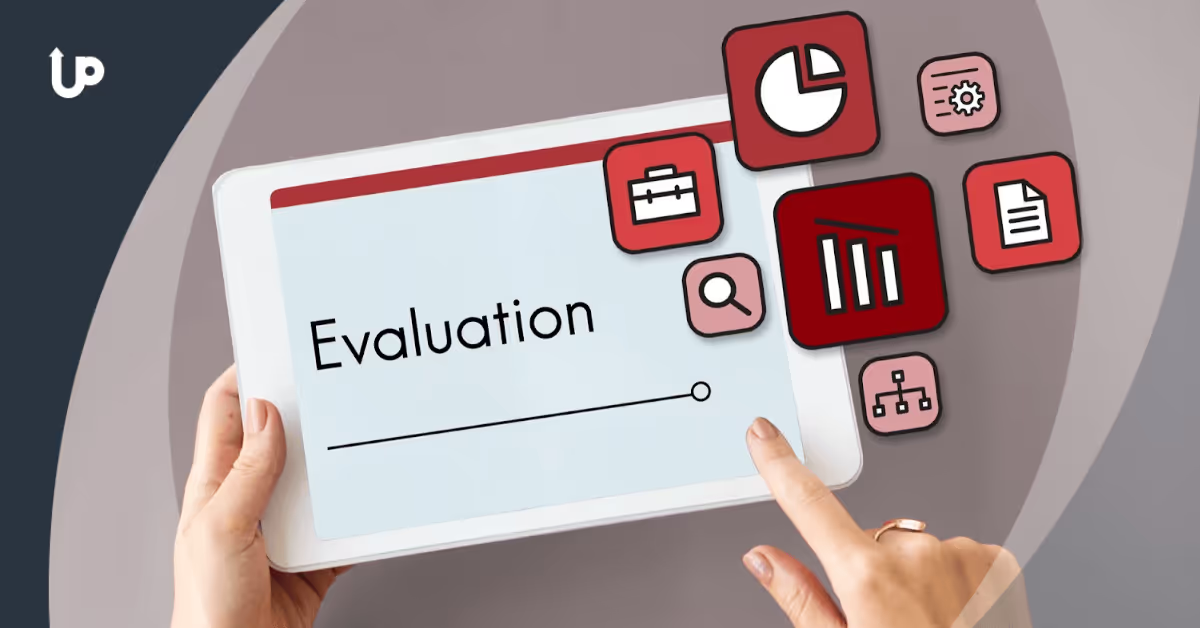Lead verification is similar to checking the ingredients on a recipe before you start cooking. Just like making sure you have all the right ingredients for a delicious meal, lead verification ensures that the information you have about potential customers is accurate and reliable before you start your sales and marketing efforts.
As a business owner or decision maker, you wouldn’t want to waste time and resources chasing leads that aren't genuine or accurate.
The question is, how do you identify quality leads? In this article, we will explore the importance of lead verification, different ways to verify leads, and best practices. Keep on reading.
What is Lead Verification?
Lead verification is the process of confirming the accuracy and validity of information provided by potential leads or prospects.
In various industries, especially in sales and marketing, generating leads is important for business growth. Leads are potential customers who have shown interest in your products or services. By consistently generating new leads, you can expand your customer base and increase revenue over time.
However, not all leads are genuine or accurate. Lead verification involves techniques and tools to authenticate the information provided by leads — these include contact details, demographics, and purchasing intent.
An important question to ask is, “Why is lead quality important?”
Quality leads often become paying customers. They typically have a genuine interest in your products or services, making them more receptive to your sales efforts.
3 Reasons Lead Verification Should Be a Priority in Your Business
Here are the main reasons why you should take time and effort to verify leads for your business:
1. Quality Leads: Lead verification ensures that you're pursuing high-quality leads who are genuinely interested in your products or services. By confirming the accuracy of lead information, you can focus your efforts on those most likely to convert, which helps improve your sales effectiveness.
2. Improved Conversion Rates: By focusing on verified leads with genuine interest, you're more likely to see higher conversion rates.
3. Efficient Resource Allocation: Lead verification helps you allocate your resources more efficiently by targeting leads with verified information, which maximizes your return on investment in sales and marketing activities.
How to Do Lead Verification
Lead verification refers to activities that help ensure the accuracy and validity of the information provided by potential leads. Here are 2 methods you can try:
#1: Email verification
Email verification involves validating whether an email address is legitimate, properly formatted, and active. By verifying email addresses through this process, you can ensure that you collect accurate and valid contact information from potential leads.
Here's how lead verification through email verification typically works:
- Syntax Check: The email verification tool first checks the syntax of the email address to ensure it follows the correct format (e.g., name@example.com). This step helps identify any obvious errors in the email address, such as missing "@" symbols or invalid characters.
- Domain Check: An email verification tool verifies the domain associated with the email address (e.g., domainnameexample.com). It checks if the domain exists and is properly configured to accept emails. This helps identify typos or inaccuracies in the domain part of the email address.
- MX Record Lookup: The tool performs a DNS (Domain Name System) lookup to retrieve the MX (Mail Exchange) records for the domain. MX records specify the mail servers responsible for receiving emails for a domain. By checking the MX records, the tool confirms whether the domain is set up to receive emails.
Some email verification tools also determine if the email address is deliverable, active, or fraudulent.
#2: Lead data validation
Lead data validation is the process of ensuring that the information collected from potential leads or prospects is accurate, complete, and reliable. It involves verifying the authenticity of the data provided, such as contact details and other relevant details.
Here's an overview of what lead data validation entails:
- Accuracy Verification: Checking the accuracy of lead information, such as email addresses, phone numbers, names, and other contact details, to ensure they are correct and properly formatted.
- Consistency Check: Verifying that the data provided by leads is consistent across different fields or data points. For example, checking that the email address matches the name provided and that all information aligns logically.
- Completeness Assessment: Seeing to it that lead data is complete and includes all necessary information for effective communication and follow-up. This may involve validating that all required fields are filled out accurately.
- Duplication Detection: Identifying and resolving duplicate entries within lead databases to prevent redundancy, streamline processes, and maintain data integrity.
There are plenty of automated validation tools or software that can check the accuracy and validity of lead data. 💻
In some cases, leads may undergo manual review by sales or marketing personnel to verify their information further. 🧑🏫This may involve contacting leads directly to confirm their details or conducting additional checks to guarantee their accuracy.
Ways to Incorporate Lead Verification Into Your Marketing Strategy
Lead verification ensures that you’re engaging with high-quality leads who are more likely to convert into customers. Here are some ways you can incorporate it into your marketing strategy:
Determine your lead verification criteria.
Start by identifying the key data points that are critical for verifying the authenticity of leads. This typically includes contact information such as email addresses, phone numbers, names, and other relevant details depending on your business and industry.
Determine the specific parameters or criteria that you'll use to verify lead information. This may include factors such as syntax validation, phone number validation, and identity verification. Also, test your verification criteria against sample data sets to ensure effectiveness and accuracy.
You can do this by choosing a representative sample of data from your lead database or other sources. Then, apply your verification criteria to the sample data sets. This involves running each lead's information through the verification process.
Based on your analysis, you can make any necessary adjustments to your verification criteria to improve effectiveness and accuracy.
When doing a referral campaign, validate participants' email addresses.

A referral campaign can be a highly effective way to generate leads for your business. Referrals are a form of word-of-mouth marketing, which is known to be one of the most powerful and persuasive forms of advertising.
Offering incentives or rewards for referrals incentivizes existing customers to actively promote your business to their networks. This can range from discounts, freebies, or loyalty points for both the referrer and the new lead, providing a win-win situation for all parties involved. In exchange for incentives, you get more leads!
You can incorporate lead verification into your referral campaigns by validating participants’ email addresses.
UpViral is a marketing platform where you can create referral campaigns. Participants can earn rewards or incentives for referring friends, family, or colleagues to your business.
One feature offered by UpViral is Automatic Email Verification. It integrates a tool named “Email List Verify” which can verify email addresses. The tool will check for invalid and inactive emails, temporary email addresses, syntax errors, and more.

Allow leads to sign up or log in using social media
Social authentication is the process wherein leads sign up or log in using their social media accounts (such as Facebook, Google, Twitter, or LinkedIn).
By doing this, they grant permission for the platform to access certain information from their social media profiles. This typically includes basic profile information such as name, email address, profile picture, and sometimes additional data depending on the permissions granted by the user.
By leveraging the information obtained from the user's social media profile, businesses can verify the authenticity of the lead's identity. Social authentication can help reduce the risk of fraudulent sign-ups or fake accounts.
Moreover, leads may feel more comfortable signing up or sharing their information through social authentication because it eliminates the need to manually fill out forms or provide personal details.
Social authentication provides a streamlined and convenient user experience, as leads can sign up or log in with just a few clicks without having to remember yet another username and password.
Regularly clean your lead database
Over time, your lead database may accumulate duplicate entries due to multiple submissions, data imports, or other factors.
Cleaning your database involves identifying and removing these duplicate entries to avoid redundancy and inaccuracies in your data.
By eliminating duplicates, each lead is counted only once, which provides a more accurate representation of your lead count.
Also, lead data can become outdated as people change jobs, email addresses, or other contact information. Regularly cleaning your lead database involves updating outdated information so that your records are current and accurate.
This may include verifying email addresses, phone numbers, mailing addresses, and other contact details to ensure they are still valid and active.
🤓Learn more: 8 Best Practices for Maintaining a Healthy List
Final Thoughts
Lead verification makes sure that the leads you engage with are genuine, accurate, and relevant to your business.
You can verify leads in a variety of ways, however, if you plan to run a referral campaign, contest, or giveaway, you can use UpViral. Aside from making campaign creation simpler, you can also verify the emails you get to ensure that they’re high quality.
If you’re interested in learning more, you can click here to learn how other businesses have succeeded in using UpViral! 🙌🏻





.png)